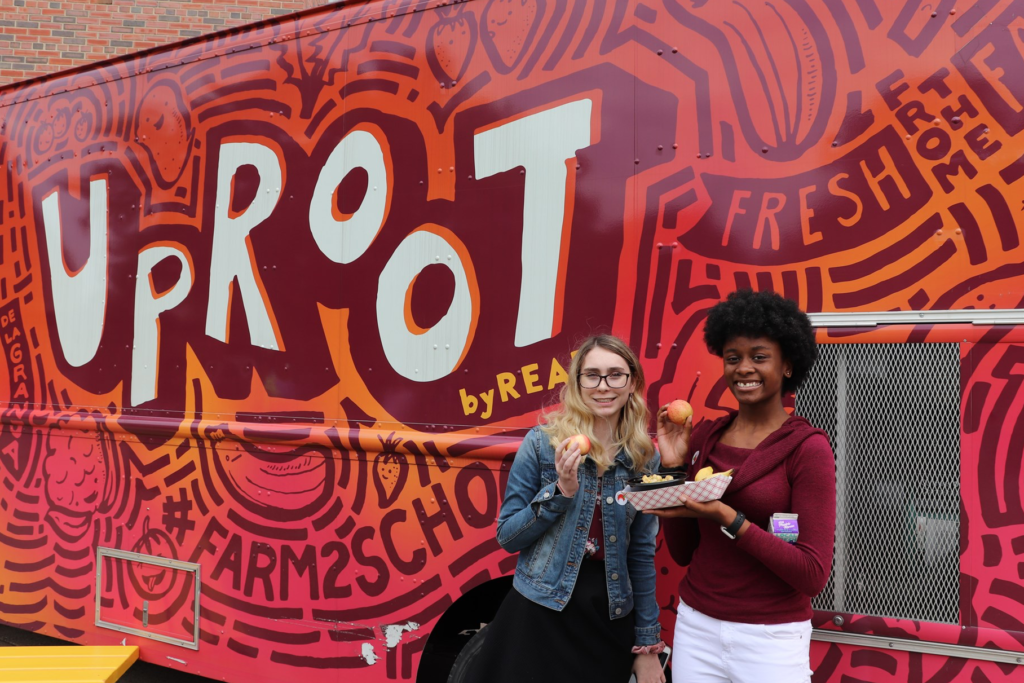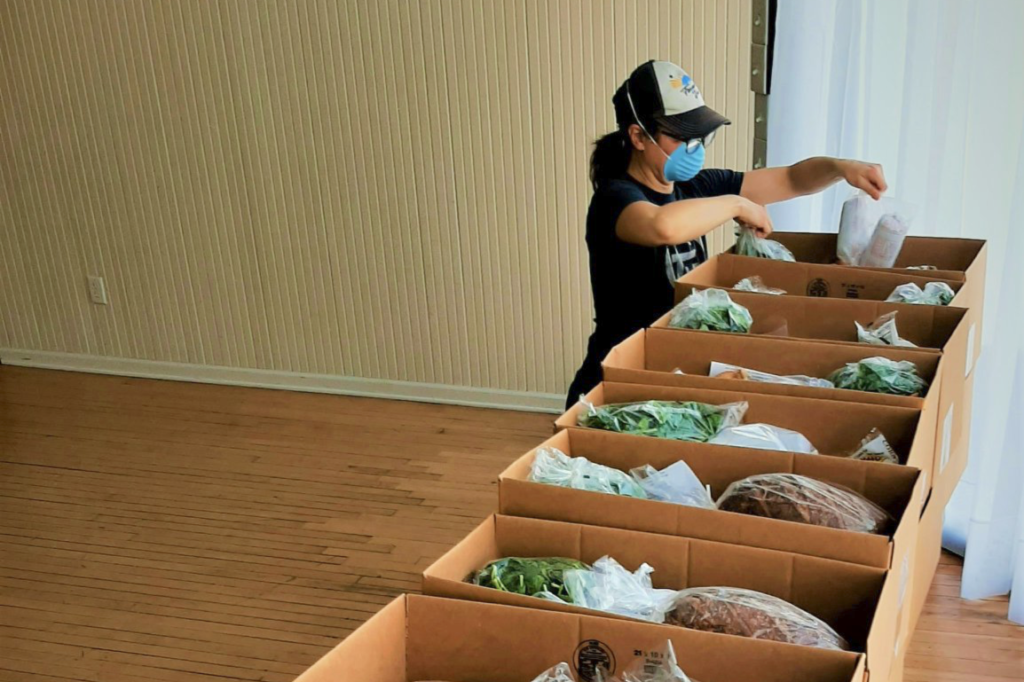
REAP is a nonprofit that strives to transform communities, economies and lives through the power of good food.
Through youth education, connecting local and sustainable farmers to buyers, strengthening community-led solutions to food system challenges, educating consumers and celebrating with the community around good food, REAP is an incredible resource between the southern Wisconsin community and healthy, sustainable eating.
REAP executive director Helen Sarakinos shares more on the organization below, as well as information on how families can practice the mission of REAP while navigating the challenges presented by COVID-19.
How and when did REAP originate?
REAP originated in 1997 as the Dane County Research, Education, Action and Policy Group on Food (R.E.A.P.). We eventually dropped the acronym and now it’s just REAP Food Group, but the focus has been to engage and educate the public about the importance of nurturing just, local and sustainable food systems.
What is the Farm To School program?
The Farm to School Program is a model initiative to help build a healthier relationship to food and a healthier future for children in school. REAP’s work bridges multiple strategies to ensure that students — especially those who face systemic or structural barriers to good food — have increased access to fresh, locally grown fruits and vegetables and the opportunity to learn to grow, cook and enjoy fruits and vegetables.
How has that program specifically impacted the community? Any story that sticks out in particular?
Our communications director loves to tell the story of visiting a classroom on REAP snack day one late winter. When that class of second graders found out the snack was frost-sweetened spinach from Snug Haven Farm, they cheered. They literally clapped and cheered. Those kids had met Bill the farmer, learned about how he grows winter spinach in the farm hoop house even in the dead of winter, and got to taste how sweet and crunchy his spinach was. For many children in our programs, this is some of the only food education and regular exposure to fresh food they receive, and it makes all the work worth it to know we are shaping these kinds of attitudes around good food being delicious that will serve these kids for their whole lives.
Families are spending a lot of time at home during this time. How can families practice the mission of REAP at home?
Glad you asked! First of all, being home so much might provide some of you the opportunity to get your kids more involved in helping to prepare meals or snacks, and our experience in this classroom has taught us that the more they are involved in growing and making food, the more willing they are to try it. Beyond that, our Americorps members have been hard at work developing fun and interactive digital lessons and activities for families to try at home. Check out our Farm to School resources, which are chock full of videos, lesson plans and guides, as well as our Farm to School Instagram and Facebook pages

Due to COVID-19, you started the Farm To Families Emergency Initiative. What does that program look like?
Farms to Families/Fondo de Granias is an emergency initiative created by a partnership with Raices para el Cambio-Roots4Change, or R4C.
R4C is a cooperative of community health workers (promotoras de salud) and doulas working with a rapidly growing network of over three hundred low-income Wisconsin Latino/Indigenous families to provide maternal and child health support. The program will purchase fresh, healthy, locally grown food from regional family farms and deliver it to Dane County Latino/Indigenous residents and families hard-hit by this health and economic crisis.
Mariela Quesada Centeno, the Roots4Change cooperative manager, says it best: “Our Latino/Indigenous families are uniquely impacted by this crisis — they make up forty percent of service workers in the county, and ninety-four percent of families with children fall below the poverty line. Together with compounding factors, including lack of information, social isolation and fears surrounding immigration status, it makes it so that they are among the least likely to seek help from established food and support programs.”
This crisis is giving R4C and REAP’s partnership an opportunity to re-appropriate the meaning of sustainable local food systems and move it to revive an equitable system, based on mutual solidarity: farmers need to make a living and people deserve to eat wholesome food.
Over the last six weeks, we’ve reached hundreds of adults, children and the elderly with fresh greens and nutritious eggs, meat, dairy and grains — even locally sourced handmade tortillas and beans. We’ve supported more than twenty local farms and farm businesses, many of them minority-owned and operated. We have gotten positive comments from families and producers about the program, and gratitude for the labor put into growing this food. We are also enjoying seeing beautiful photos of the traditional dishes and recipes being prepared with the resilience boxes.
How can the community help?
We are setting a new stretch goal of $60,000 to keep creating resilience boxes into the fall and to grow the number of families who can access them. Right now, we have about $7,000 to go to reach our goal. Even a gift of $10 or $20 is welcome and needed — the waiting list grows weekly for this program. Visit our website to learn more and donate online.
What is the Farm Fresh Atlas and where can we find it?
The Farm Fresh Atlas is a consumer’s guide to local growers, food producers and food businesses supporting Wisconsin farms. We print an annual Atlas for Southern Wisconsin but are also part of the online resource farmfreshatlas.org, which lists family farms across all regional Atlases in the state. It’s an easy way for individuals to connect to local food wherever they are in Wisconsin by finding farmers markets, u-picks or businesses dedicated to supporting Wisconsin family farms.
This COVID-19 pandemic has revealed how brittle our global food supply chains can be and has reinforced the importance of nurturing local food supplies for communities. REAP has produced a Safer at Home Farm and Food Guide to help residents of southern Wisconsin more easily find and support farms and food businesses. Check this resource out and take this opportunity to buy fresh and seasonal food from your local farmers. They are critical to a strong community and economy and they can use our support.
Megan Kulick is a journalism graduate of the University of Wisconsin-Platteville. She worked in the nonprofit field for seven years before becoming a stay-at-home mom. She and her husband, alongside their daughter and labradoodle, live in Mount Horeb. She is always in pursuit of a great trail to run, a good book to read and the best place to find a good iced coffee.